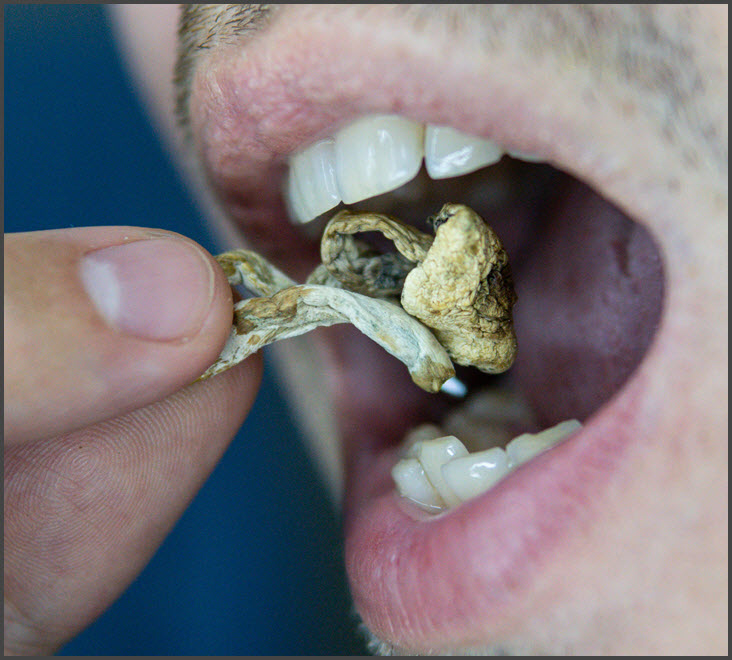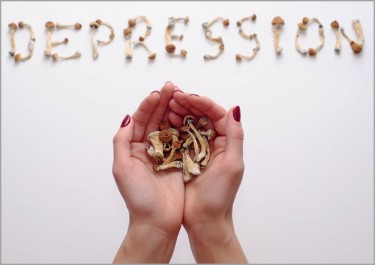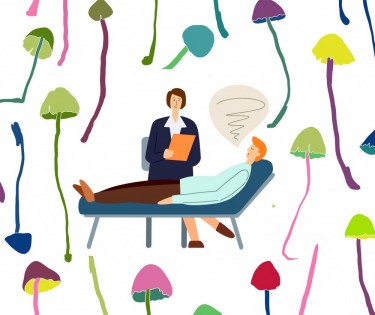
If you want to quit alcohol, try mushrooms!
Alcohol Use Disorder (AUD), also known as alcoholism and alcohol abuse, is a condition in which a person is no longer able to control their alcohol consumption, even if it poses health and occupational risks.
It is an umbrella term used to refer to the symptoms that are the same as alcoholism and addiction. Because it changes the chemistry of the brain, it is already considered a type of brain disease, although its symptoms can vary from mild to moderate to severe. Long-term alcohol abuse leads to long-lasting changes in brain chemistry and makes relapse much more likely.
Data shows that around 107 million people worldwide have alcohol abuse disorder. It can lead to death both indirectly and directly. It is also linked to mental health problems that can further reduce the quality of life.
So how do we deal with a condition that plagues societies around the world? Not everyone can afford the healthcare costs associated with alcoholism, and with such a stigma attached, many do not even want to seek help.
Enter psilocybin
Psilocybin is a naturally occurring compound found in magic mushrooms that grow in Asia, the United States, Europe, Mexico, and South America. The mushrooms can be dried or fresh, and they can be from any of the more than 180 species of mushrooms that contain this therapeutic compound.
Psilocybin has been used by indigenous tribes for centuries, as well as in religious ceremonies. In the past few decades, its therapeutic utility and benefits have been discovered in the medical setting. A new study examines the benefits for treating alcohol use disorders. Researchers analyzed the effects of alcohol addiction on the frontal cortex of model rats with alcoholism, then examined how psilocybin works at the molecular level. Psilocybin is one of several psychedelic drugs currently being studied for promising benefits in behavioral disorders, including addiction.
“With an alcohol use disorder, you see a lot of cell loss and degeneration of brain tissue. At the network level, if you look at the activity of different networks, you will see that many networks associated with executive functions are mainly downregulated, but are greatly increased when challenged by specific signals such as the smell of alcohol, ”explains First author Dr. Marcus Meinhardt of the study published in Science Advances. Meinhardt is a research associate at the Central Institute for Mental Health in Mannheim, associated with the University of Heidelberg.
Meinhardt and his team specifically focused on a glutamate receptor that is affected by pure alcohol; the receptor is known as the metabotropic glutamate receptor subtype 2 (mGluR2). Glutamate plays an important role in healthy brain function. So if it is harmed by drinking too much alcohol, for example, then the work of neurotransmission in the brain is faulty. What makes it worse is that alcohol reduces the production of glutamate, which results in fewer neurotransmitters being produced.
The researchers admit that many factors play a role here, many of which they are not yet aware of, because the world of addiction treatment and changing behavior is still so complex, even for today’s scientists. According to Meinhardt, there is still a lot to be researched into the mechanisms.
However, the use of psilocybin to treat addiction is nothing new. What confuses researchers is exactly how it happens.
Older Studies on Psilocybin and Addiction
One of the groundbreaking studies on the subject came in 2006 when Roland Griffiths, a renowned substance abuse researcher at John Hopkins, led a groundbreaking study that was originally designed to analyze the immediate and long-term mental health effects of when psilocybin was high Cans consumed.
They had 36 healthy subjects who occasionally took psilocybin for mystical experiences, one of the most common, or perhaps most common, reasons people take it. After their session, participants reported feeling positive mentally, and this was also observed in their behavior months after the experiment. A third of them also rated the experience as one of the most spiritually significant times of their lives, while 80% of them said it was among the five most meaningful experiences.
Michael Bogenschutz, senior investigator for alcohol abuse and addiction studies and psychiatry in the early 1990s, said the results of this study were critical to recovery and addiction. “As a clinician and scientist, I’ve always been interested in how people change,” he said. “It’s very difficult to predict or understand. With addiction in particular, sometimes this can happen based on nothing we can discern, and sometimes people achieve a categorical change in behavior as a result of a great religious revelation or spiritual awakening, ”he says.
Even if the Hopkins study participants weren’t addicted to anything, Bogenschutz says: “The fact that they had mystical experiences that were extremely meaningful to them and that were associated with positive behavioral changes that were confirmed by their family members, appealed to me brought to study “. This.”
Matthew Johnson, Johns Hopkins Associate Professor of Psychiatry and Behavioral Science in 2012, conducted another experiment on 15 patients. They all smoked an average of 19 cigarettes a day and tried 6 times to quit for over 30 decades. All participants were required to undergo a smoking cessation program that included cognitive behavioral therapy (CBT) and psilocybin treatment once a week for weeks 5 and 7 for 15 weeks. You also had the option to take it on week 13.
A then 65-year-old participant, Gordon McGlothin, who smoked 20 cigarettes a day, took part in the study. During one of those sessions, McGlothlin was given a capsule containing pure psilocybin, and the researchers also told him it would be his last day to smoke cigarettes.
6 months after the study, 80% of the participants stopped smoking. “The results are inconclusive, but we strongly suspect the psilocybin plays a role because smoking cessation rates are so much higher than even the best current psychological or pharmacological treatments for tobacco addiction, which are typically around 35%,” said Johnson .
Given these success rates, we can only expect more positive results as scientists delve deeper into the world of psychedelics. It can only be the cure we are all looking for to treat addiction.
MORE ABOUT PSILOCYBIN READ THIS …

PSILOCYBIN EXAMINES FOR DEPRESSION AND LOOK WHAT!
OR..

FUNGI ARE 4X MORE EFFECTIVE FOR DEPRESSIONS AS A THERAPY?

Post a comment: